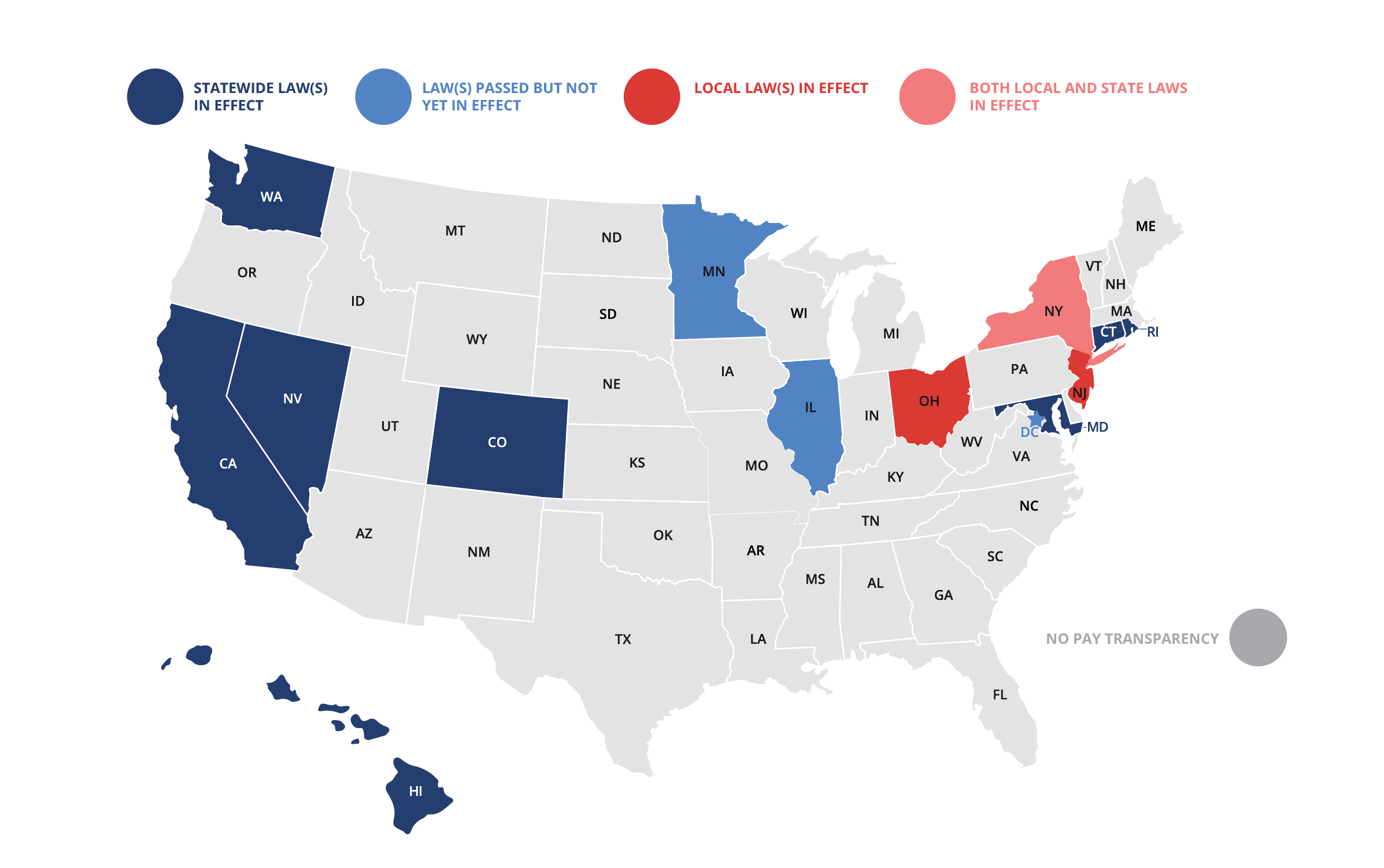A dozen states have enacted pay transparency laws, which require employers to be more open about wages and benefits. Those laws will require employers to disclose wages in new job postings, while some of the laws will also bar employers from asking a job candidate about their salary history.
Currently, California, Colorado, Connecticut, Hawaii, Maryland, Nevada, and Washington State have statewide laws in effect, with New Jersey and Ohio having local laws in place that require pay transparency. New York has both local and statewide laws, while Illinois, Minnesota, and Washington, D.C. have passed laws that have yet to go into effect.
The laws have so far taken varying approaches to ensure transparency, with some requiring employers to disclose the salary ranges for open positions, prohibiting retaliation against employees who discuss their salaries with others, or even requiring employers to report salary data to government agencies. As these laws are at the state and local level, there are already sharp contrasts.
For example, it has been reported that California’s pay transparency laws may require companies with at least 15 employees to post salaries for all open positions – but Colorado requires that all companies, even those with one employee, must disclose the salary. Hawaii’s new pay transparency law, which took effect in January, has called for job listings to include hourly rates as well as salary range.
The Pros and Cons of Pay Transparency Laws
However, there are already questions as to the effectiveness of the laws. Pay transparency proponents have contended that the laws will arm workers with the knowledge necessary to bargain for just compensation, and could lessen the likelihood of pay disparities based on racial or gender stereotypes.
However, doubts remain.
A 2022 Harvard Business Review study warned that pay transparency could compress pay, while immediate supervisors are often the ones responsible for providing disgruntled employees with any justification for visible pay differentials. That can include supervisors who have little to no say in adopting company-wide policies.
Pay transparency can also lead to discomfort among employees while revealing pay could impact hiring decisions. One example would be that it limits the ability of companies to increase salary offers without causing current employee resentment – while not increasing a salary offer could result in the loss of a great candidate.
“Pay transparency sounds like an objectively good cause, especially when it comes to equalizing pay gaps. However, these transparency laws could also have some negative effects,” said Scott Lieberman, founder of business strategy firm Touchdown Money.
“To many employees, pay relates directly to performance,” Lieberman told ClearanceJobs. “Depending on what pay laws reveal, productivity may actually be decreased if employees discover that pay is not as heavily based on performance as they thought.”
This can also tie in with retaining high performers.
“If a high-quality employee sees that their pay isn’t compensating what they believe their work is worth, there’s a pretty good chance they will find a place to work that will,” added Lieberman. “It may be too early to tell if pay transparency is doing more good than evil, but I think we can all agree it’s at least a step in the right direction.”





